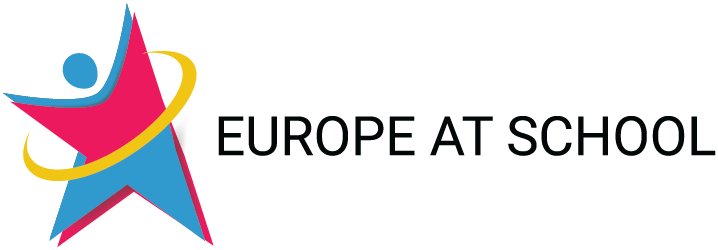about
Making young people aware of European citizenship and encouraging them to actively exercise their European citizenship.

The “Europe at School” activities aim to make young people aware of European citizenship and to encourage them to actively exercise their European citizenship . Based on non-formal education and learning methods, they are delivered in the formal school system as well as in non-formal learning contexts. They promote exchange with young people and debate between them.
The sections and partners of the JEF regularly organize actions related to civic education and have developed their own tools and methodologies for these actions.
The Europe at School – Youth to you project
From 2017, JEF Europe wished to strongly develop the “Europe at school” initiatives by supporting its sections and partners in carrying out this type of project and by developing synergies within the network in order to develop resources. municipalities and disseminate them.
The project “Europe at School – Youth to You”, funded by the Erasmus + program of the European Union (2017-2019), aimed to develop these practices and provide young volunteer animators with an adequate set of skills and resources to design and carry out ‘Europe at School’ activities themselves specially intended for young people in primary, secondary and vocational schools (VET). The project brought together 6 partners: JEF Europe, Les Jeunes Européens – France, JEF Germany, JEF Malta, JEF Macedonia and Young Educators.

find us
our locations
![]() Malta
Malta
![]() Portugal
Portugal
![]() Belgium
Belgium
![]() Germany
Germany
![]() Macedonia
Macedonia
![]() France
France
![]() Malta
Malta
![]() Portugal
Portugal
![]() Brussels
Brussels
![]() Berlin
Berlin
![]() Macedonia
Macedonia
![]() Paris
Paris

Training seminars
Thanks to this project, a series of three trainings was organized. During these trainings, participants from more than 10 European countries were trained to offer more innovative activities within the framework of the “Europe at School” program. Participants exchanged good practices, shared information on the different opportunities and obstacles in their countries and had the opportunity to reflect on existing tools, use their creativity to develop new ones and practice on site.
The first training, which took place in Lyon, France, from May 23 to 27, 2018, focused on primary schools. The second training, which took place in Lisbon, Portugal, from October 25 to 29, 2018, focused on secondary education. The third training, which took place in Brussels, Belgium, from March 13 to 17, 2019, focused on vocational education and training (VET).










